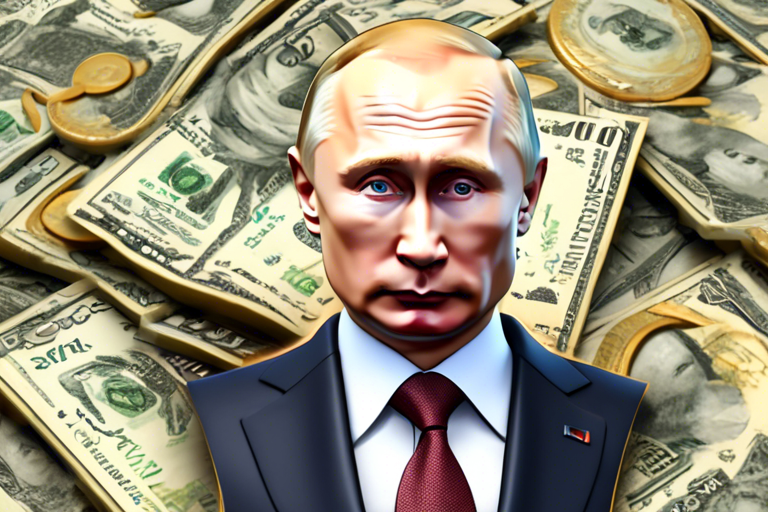Exploring Alternatives to the U.S. Dollar Dominance
The U.S. dollar has been a dominating force in the global financial system for decades. However, recent developments suggest that this may be changing. As cryptocurrencies, gold, and silver gain traction as alternatives to traditional fiat currencies, the future of the dollar’s supremacy is being questioned. In this article, we will explore the growing trend of de-dollarization and the potential impact on the global economy.
The BRICS Challenge to U.S. Dollar Dominance
One of the most significant threats to the U.S. dollar’s dominance comes from the BRICS nations (Brazil, Russia, India, China, and South Africa). These countries are actively working on developing an alternative payment platform that reduces reliance on the dollar. This initiative, born out of the Johannesburg summit in 2023, aims to facilitate trade and lending among BRICS nations using their local currencies instead of the dollar.
-
BRICS Efforts to Reduce Reliance on the Dollar
- The initiative aims to bolster trade and lending among BRICS nations.
- This move challenges the long-standing dominance of the U.S. dollar in global transactions.
-
Historical Context of the U.S. Dollar
- The U.S. dollar has been the world’s reserve currency since the Bretton Woods system in 1944.
- President Richard Nixon ended the gold standard in 1971, shifting the dollar to a fiat currency.
-
Russia’s Stance on De-Dollarization
- Facing sanctions, Russia is actively moving away from the dollar.
- The ruble now accounts for a significant portion of Russia’s import and export transactions.
- Trade between Russia and China
- Trade between Russia and China has surged, with settlements in their national currencies.
- Over 90% of transactions between the two countries are conducted in their local currencies.
Diversifying with Gold, Silver, and Cryptocurrencies
As the push for de-dollarization gains momentum, investors are looking towards alternative assets like gold, silver, and cryptocurrencies as safe havens. These assets are not controlled by any single government or central bank, making them appealing in times of economic uncertainty.
-
Role of Commodities and Cryptocurrencies
- Gold and silver have been traditional stores of value for centuries.
- Cryptocurrencies like Bitcoin, Monero, Litecoin, Bitcoin Cash, MultiversX, and Nano offer decentralization and security.
-
Challenges in Replacing the Dollar
- Analysts highlight the difficulty in replacing the dollar due to its deep-rooted presence in global finance.
- American dysfunction is seen as a bigger threat to the dollar’s supremacy than foreign efforts.
- Future of De-Dollarization
- The U.S. must address internal challenges to maintain the dollar’s dominance.
- The BRICS nations’ efforts to establish an alternative payment platform will shape the global financial landscape.
Shifting Global Dynamics
The geopolitical landscape is undergoing a significant shift with the rise of multipolarity and the decline of a unipolar world. The uncertain role of the U.S. dollar in this new global order raises questions about the future of global finance and trade.
In a recent video released by Sputnik, Russian President Vladimir Putin criticized the United States for abandoning the gold standard. The criticism is based on the country leaving the U.S. dollar as a trust-based currency backed by nothing.
According to the video translation shared by Jane Adams in a post on X, Putin stated:
“The United States decided to step away from the gold equivalent. There is no other promise, no other collateral rather than trust towards the U.S. economy.”
Hot Take: Embracing a New Financial Era
As the global financial landscape undergoes a transformation, it is evident that the era of U.S. dollar dominance may be coming to an end. Investors and policymakers must adapt to the changing dynamics and explore diverse alternatives to traditional fiat currencies. The rise of cryptocurrencies, gold, and silver as viable options signals a shift towards decentralization and resilience in a rapidly evolving world.





 By
By
 By
By
 By
By
 By
By
 By
By